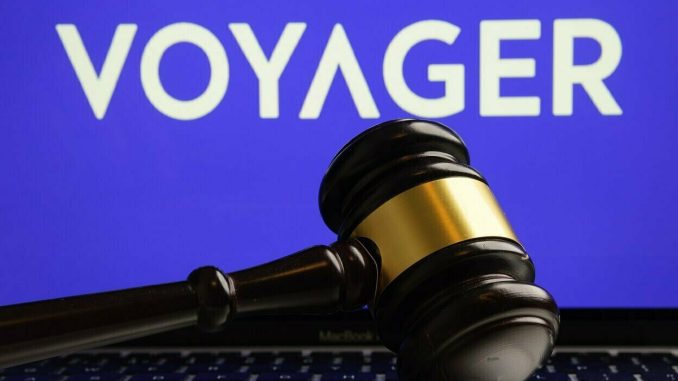
Bankrupt crypto lender Voyager Digital has announced plans to self-liquidate its assets and shut down operations after deals to sell itself to FTX or Binance.US fell apart.
In a Friday filing, lawyers of the company revealed that Voyager customers will now recover 36% of their crypto holdings, lower than the 72-73% estimated recovery rate they would have received if the Binance.US acquisition plans had gone through.
However, according to the filing, the recovery rate could increase if defunct crypto trading firm Alameda Research is unsuccessful in attempting to claw back $446 million from Voyager’s estate.
Voyager’s lawyers are also withholding further funds, including $259.6 million for litigation costs, administrative claims, and other holdbacks.
Customers who have any of the 67 supported tokens, including Bitcoin and Ether, stuck on the platform will be able to withdraw the allowable percentage directly.
However, a number of digital assets on the platform that cannot be withdrawn will be liquidated and returned to customers, which include major cryptocurrencies like Algorand (ALGO), Celo (CELO), and Avalanche (AVAX).
The failed crypto lender also mentioned that former customers will receive some form of reimbursement soon. “We are hopeful that initial distributions will begin within the next few weeks,” it wrote on Twitter.
Voyager lawyers noted that after the procedures are filled, there will be a 10-day objection period.
If objections to the plan emerge, the matter will go to a hearing where the court will weigh the arguments. If there are none, Voyager is planning to move quickly with its plan.
Nevertheless, the recovery rate for Voyager customers is abysmally low. In comparison, creditors of Celsius, another bankrupt crypto platform, are estimated to receive 70% of their holdings back.
Voyager’s Rocky Liquidation
Since Voyager first revealed its massive exposure to failed crypto hedge fund Three Arrows Capital last year, the company has been working on how to return assets to its investors.
Initially, FTX secured the approval of a US bankruptcy court to take over Voyager’s assets, but it infamously collapsed soon after.
Subsequently, Binance came into the game with an offer that valued Voyager at $1 billion.
However, 10 days ago, the exchange pulled out of the deal, citing a “hostile” regulatory climate in the United States. Binance.US said on Twitter at the time:
“While our hope throughout this process was to help Voyager’s customers access their crypto in kind, the hostile and uncertain regulatory climate in the United States has introduced an unpredictable operating environment impacting the entire American business community.”
The decision came after US regulators, including the Securities and Exchange Commission (SEC) and New York’s financial regulator, attempted to halt the deal.
The SEC had claimed the Voyager deal might violate laws on the unregistered offer and sale of securities while New York’s top financial regulator said Voyager “illegally operated a virtual currency business within the state without a license.”




Be the first to comment